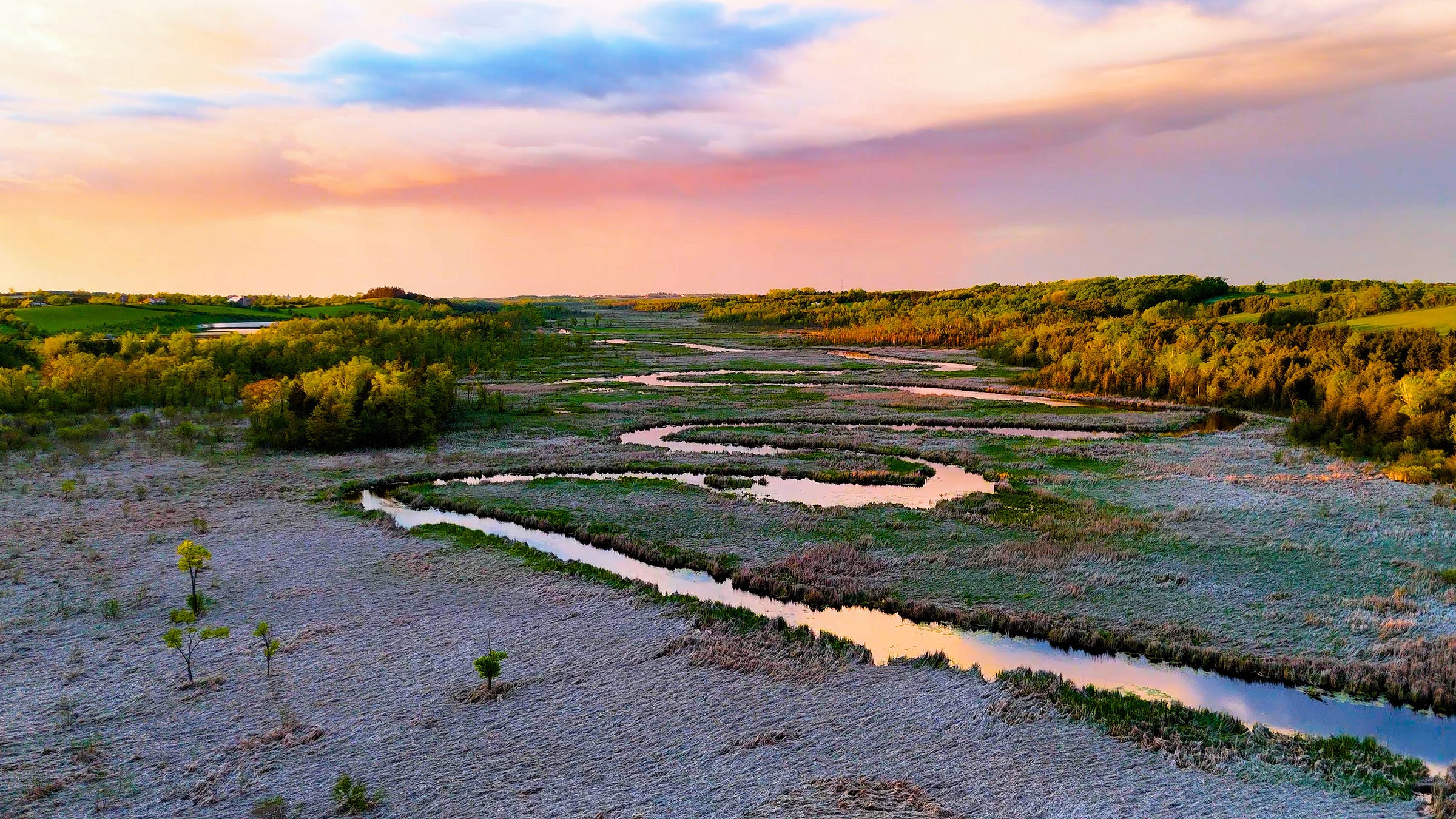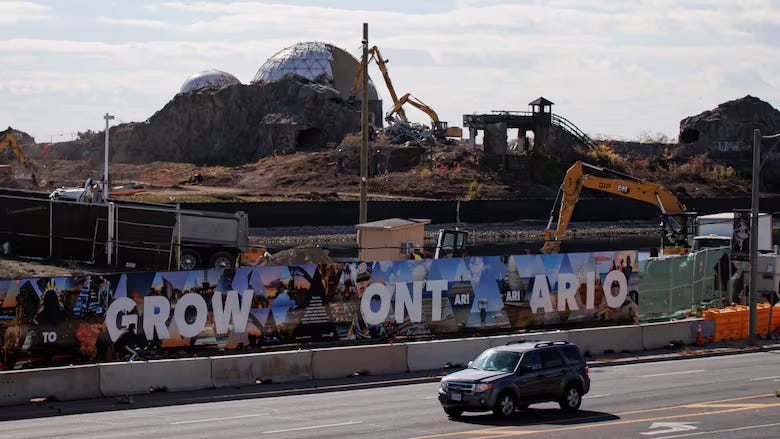Doug Ford's War on Wildlife: How Ontario is Abandoning Environmental Protection
Unpacking the environmental rollbacks under Ford’s government and why every Ontarian should be concerned about the future of nature, economy and community well-being

Ontario Premier Doug Ford's government has ushered in a new era of environmental rollbacks, passing Bill 5 on June 4, 2025. This move has been widely condemned by conservationists, Indigenous leaders, legal experts, and community advocates. The legislation repeals the Endangered Species Act, replaces it with a weaker law, and grants cabinet sweeping powers to create “special economic zones” where normal environmental rules and public consultation can be suspended. These changes represent more than bureaucratic adjustments; they signal a fundamental shift away from Ontario's responsibility to protect its natural heritage for future generations¹.
The consequences extend far beyond Queen’s Park. These decisions affect every Ontarian who values clean water, breathable air, and the diverse ecosystems that make this province unique. While other jurisdictions strengthen environmental protections in response to climate change, Ontario is moving in the opposite direction by prioritizing short-term economic gains over long-term environmental sustainability².
Bill 5: Dismantling Protection for Species at Risk

The most alarming development in Ford's environmental agenda is Bill 5, which passed its third and final reading in the Ontario legislature this week and now awaits Royal Assent. This legislation fundamentally undermines Ontario's Endangered Species Act. Bill 5 does not merely modify existing protections; it repeals the Endangered Species Act and replaces it with a watered-down Species at Risk Conservation Act. The new law removes the goal of species recovery and allows the provincial cabinet to decide which species merit protection, turning a science-based process into a political one¹. Conservationists warn this will virtually guarantee continued decline or extinction for many species that lose legal protection³.
Perhaps even more concerning, Bill 5 gives Cabinet the power to designate “special economic zones” where provincial environmental laws and safeguards do not apply. In these zones, companies could be exempted from obeying regulations, bylaws, and standards meant to protect land, water, and communities². Environmental advocates compare this to granting “Henry VIII” powers, as it allows the government to waive democratically enacted laws at will. This kind of authority is almost unheard of in modern democracies⁴.
Bill 5 also includes tailor-made exemptions for politically connected projects. For example, it carved out Ontario Place from environmental assessment requirements, ensuring a planned private spa on the waterfront faces no public consultation over its environmental impacts. Even more brazenly, Bill 5 exempts a specific landfill in Dresden, Ontario from needing environmental approval, a favour to a company with close ties to Ford’s party⁴.
Unsurprisingly, Bill 5 met unified opposition from environmental groups, Indigenous leaders, and opposition parties. The Chiefs of Ontario warned that these special zones could trample Indigenous rights and ignore the duty to consult First Nations on developments in their territories². This approach is a stark departure from the precautionary principle embraced in Europe and other jurisdictions, where stringent environmental assessments and species protections for major projects are the norm⁵.
Bringing Back Penned Hunting: A Practice Banned Elsewhere

Perhaps no policy better illustrates Ford's disregard for both animal welfare and public opinion than his decision to expand penned hunting facilities in Ontario. For the first time in more than 25 years, the province is accepting applications for new "train and trial areas" where hunting dogs chase captive wild animals, including coyotes, foxes, rabbits, and hares.
This practice is illegal in every other Canadian province and most US states because of its inherent cruelty. The facilities confine wild animals in fenced areas where they serve as live bait for hunting dogs, creating what critics describe as a "bloodsport" that offers no fair chase or escape for the animals involved. Despite claims from proponents that animals are not harmed, investigations have revealed that dogs frequently chase and maul live animals in these enclosures⁶.
The expansion of penned hunting represents a step backward for animal welfare in Ontario. The province had been successfully phasing out these facilities since 1997, reducing their number from 60 to just 24. By reversing this progress, Ford's government has chosen to prioritize the interests of a small group of hunting enthusiasts over widely held public concerns about animal cruelty.
Beyond the ethical issues, these facilities pose genuine public health risks. The confined conditions and mixing of wild and domestic animals can facilitate the spread of diseases like rabies or parasites, especially when wild animals are kept in stressful, unnatural densities and come into contact with dogs and humans.
Ontario today stands alone in Canada in permitting penned hunting. All other provinces have outlawed it, and many did so decades ago. Most U.S. states also prohibit penned hunting, recognizing that letting domesticated hounds torment wildlife in a cage has no place in a civilized society⁶.
Environmental Rollbacks Across the Board
The Ford government’s environmental policy reversals extend far beyond high-profile issues like Bill 5 and penned hunting. These systemic changes threaten Ontario’s economic stability, public safety, and long-term competitiveness while alienating both fiscal conservatives and progressive voters. By prioritizing short-term industrial gains over strategic planning, the administration is creating a legacy of avoidable risks that will burden taxpayers and businesses for decades⁵.
Gutting Environmental Assessments: A Recipe for Costly Conflicts
Bill 5’s exemption of the Dresden landfill project from comprehensive environmental assessments epitomizes the government’s disregard for evidence-based decision-making. This legislative manoeuvre, enacted after the developer challenged the original EA requirement, sets a dangerous precedent where corporate litigation threats dictate environmental policy. While streamlining approvals may appeal to businesses seeking rapid project greenlights, it ignores the long-term financial liabilities of unchecked development.
Communities near exempted projects face increased risks of groundwater contamination, soil degradation, and infrastructure strain. All of these ultimately translate to municipal cleanup costs and healthcare burdens⁴.
Crippling Conservation Authorities: Flood Risks and Fiscal Recklessness
Bill 23, the “More Homes Built Faster Act,” profoundly undermined conservation measures. Bill 23 stripped powers from Ontario’s Conservation Authorities, the local agencies that manage watersheds and guard against ecological harm in development decisions. These authorities could no longer effectively prevent building in floodplains, wetlands, or sensitive habitats. The law even forbade them from considering “pollution or conservation of land” when evaluating development proposals. Wetland protections were sharply eroded, with lenient offset schemes that experts warn will lead to net loss of these crucial ecosystems⁵.
Peterborough’s experience with catastrophic flooding in 2002 and 2004 demonstrates the stakes. These events cost millions in emergency responses and infrastructure repairs. With climate models predicting increased extreme weather, gutting flood mitigation expertise constitutes fiscal malpractice⁷.
Forcing Urban Sprawl and Undermining Local Planning
In late 2022, the province overrode numerous city and regional growth plans, mandating urban boundary expansions into farmland and natural areas that local communities had voted to keep off-limits. More than a dozen municipalities were ordered to sprawl onto thousands of acres of prime farmland and ecologically important countryside, with no ability to appeal the decision. This top-down edict ignored robust public input that favoured dense, transit-oriented development over land-hungry subdivisions, and ignored evidence that enough land was already designated for housing⁵.
The Greenbelt Fiasco: A Cautionary Tale
The most infamous case was the attempt to open up parts of Ontario’s protected Greenbelt for housing development. The Greenbelt, two million acres of farmland, forests, and wetlands encircling the Greater Toronto Area, has long been regarded as sacrosanct. In late 2022, Ford’s government announced that 7,400 acres would be removed from protection for new subdivisions. It soon emerged that the chosen parcels stood to benefit a small group of well-connected developers, some of whom had bought the lands only after Ford took power. A provincial auditor general’s investigation in 2023 found that a few developers were given a backstage pass to influence which sites got dropped from the Greenbelt, effectively handing them a massive windfall in land value. Amid a political firestorm, including the resignation of the housing minister and an ongoing RCMP probe, Ford reversed the Greenbelt removals and reinstated those lands’ protections⁸.
Highway Expansion Obsession: Subsidizing Sprawl
The premier’s fixation on highway projects like Highway 413 and the Bradford Bypass reflects a 20th-century infrastructure mindset that does not fit modern economic realities. These projects would slice through farms, forests, and portions of the Greenbelt, fueling suburban sprawl and car dependency while bulldozing wildlife habitat. In an unusual step, the province exempted Highway 413 from key environmental assessment requirements to fast-track its construction⁸.
Why Fiscal Conservatives Should Care
These environmental rollbacks contradict core conservative principles of fiscal responsibility and local autonomy. Key risks include:
Privatizing Profits, Socializing Losses: Exempting developers from environmental liability transfers cleanup costs from shareholders to taxpayers. The Walkerton water crisis, caused by deregulation, cost Ontario $160 million in compensation alone⁴.
Stifling Innovation: Ontario’s cleantech sector contracted 12 percent following the 2018 renewable energy cancellations, sacrificing 15,000 high-paying jobs⁵.
Insurance Market Collapse: As private insurers retreat from flood-prone areas, the federal government’s proposed public insurance program could cost taxpayers billions annually⁷.
Trade Barriers: The EU’s Carbon Border Adjustment Mechanism will impose significant tariffs on Canadian exports by 2030 if provinces like Ontario maintain high emissions⁵.
Ontario’s Crossroads: Why These Policies Matter to Everyone
Doug Ford’s environmental rollbacks may seem like technical policy shifts, but their impacts ripple through every aspect of life in Ontario. This is not just about ideology or party politics; it is about the air we breathe, the water we drink, and the landscapes that define our communities.
When protections for endangered species, wetlands, and farmland are weakened, the consequences reach far beyond wildlife. Healthy ecosystems are the backbone of Ontario’s prosperity, supporting clean water, pollination for crops, flood control, and even our cultural identity. If these natural systems are allowed to unravel, the effects will be felt in our food security, our neighbourhoods’ safety, and our ability to adapt to climate extremes.
The decision to legalize penned hunting, for example, is more than an animal welfare issue. It challenges the values we hold as a society. Most Ontarians reject cruelty and expect their government to reflect that in law. When policies permit practices that have been banned elsewhere for decades, it sends a troubling message about what we are willing to accept.
Similarly, the drive to pave over wetlands and farmland in the name of growth puts immediate profits ahead of long-term resilience. Once these natural defences are lost, communities face higher costs from flooding, pollution, and sprawling infrastructure. Other jurisdictions have learned to prioritize smart growth and green spaces for good reason, as these choices make cities more livable and economies more sustainable.
Perhaps most importantly, these environmental changes test the public’s trust in democratic decision-making. When major land use decisions are made behind closed doors or without meaningful consultation, Ontarians are right to feel their voices are being sidelined. The outcry over the Greenbelt reversal showed that people across the province, regardless of political stripe, want a government that acts transparently and in the public interest.
The path forward is not set in stone. Recent history proves that public engagement, through advocacy, voting, and community action, can reverse even the most entrenched policies. The choices Ontarians make now will determine whether the province continues down a path of environmental decline or chooses to balance prosperity with stewardship.
The stakes are high, but so is the potential for positive change. Democracy does not end at the ballot box. Sustained public engagement is essential to ensure that “Ontario, Yours to Discover” does not become Ontario, Yours to Pave Over. By insisting on smart development, real consultation, and policies that reflect both scientific evidence and our shared values, Ontarians can protect what matters most. Safeguarding our environment is not just about preserving nature for its own sake; it is about ensuring a healthy, vibrant, and resilient Ontario for generations to come.
(Sources)





